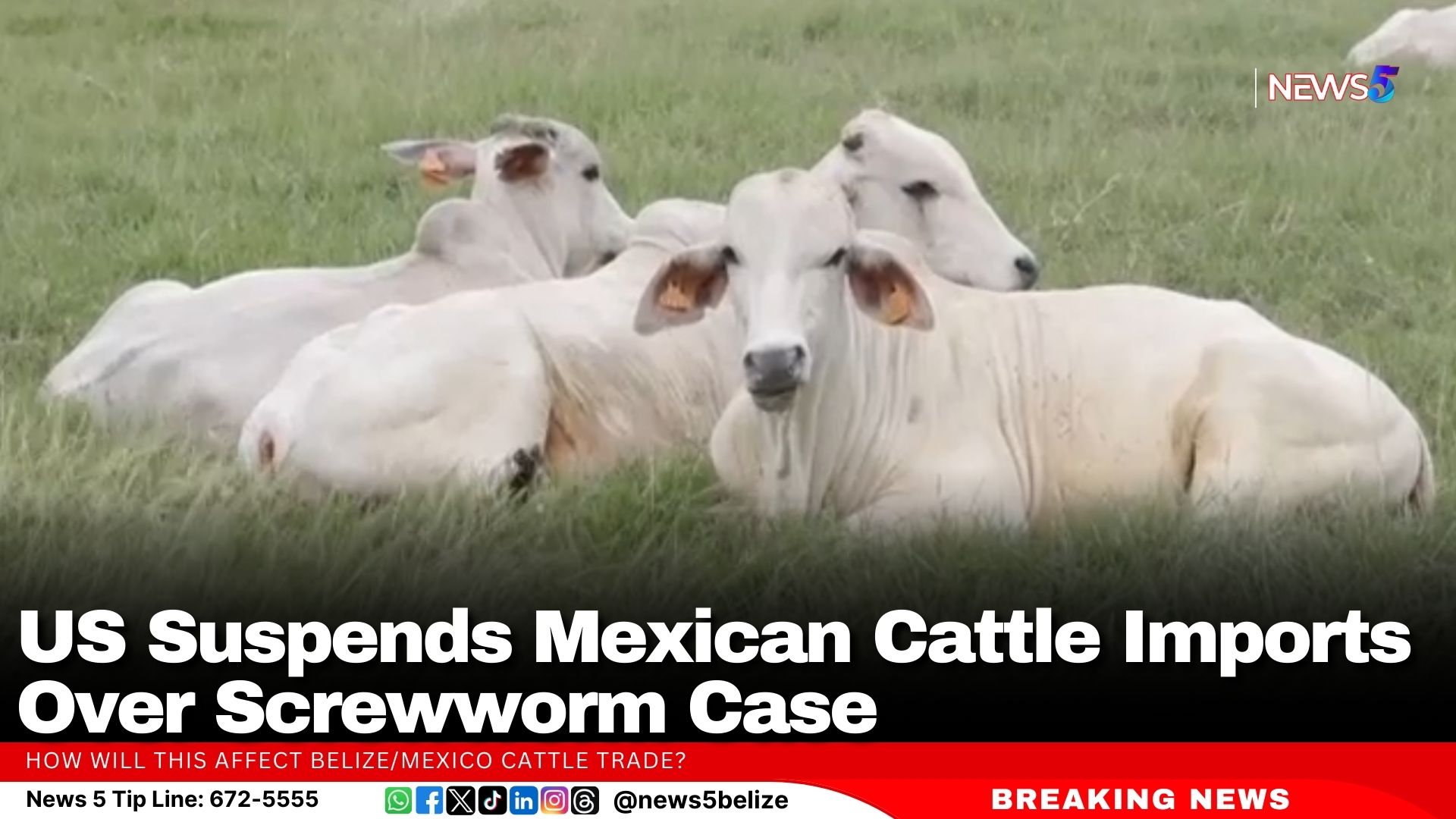The United States has temporarily halted cattle imports from Mexico following the detection of a case of New World screwworm (NWS) in Catazaja, Chiapas, near Mexico’s border with Guatemala. The announcement was made by Mexico’s government on Sunday. The severity of the threat posed by the parasitic fly can devastate livestock and other warm-blooded animals, including humans.
In its statement, the Mexican government assured that measures to control the outbreak are underway and that the suspension does not affect other exports. The U.S. Department of Agriculture (USDA) confirmed receiving notification from Mexico’s chief veterinary officer, adding that NWS infestations typically enter through open wounds, where maggots feed on living tissue. The USDA is now collaborating with Mexico and Central American partners to contain the spread, urging producers to monitor livestock closely for signs of infection.
This development comes as Belize’s Minister of Agriculture, Food Security, and Enterprise, Jose Abelardo Mai, recently participated in a regional meeting in Chetumal, Mexico, focused on the prevention of exotic animal diseases, including Foot and Mouth Disease (FMD) and screwworm.
The meeting, hosted by Mexico’s National Service for Agro-Alimentary Health, Safety, and Quality (SENASICA), brought together officials from various organisations, including the Mexican Army and the National Guard, to discuss strategies for safeguarding the agricultural sector. Gabino Galván, Regional Director for SENASICA, and other experts stressed the importance of vigilance in preventing screwworm from spreading further.
